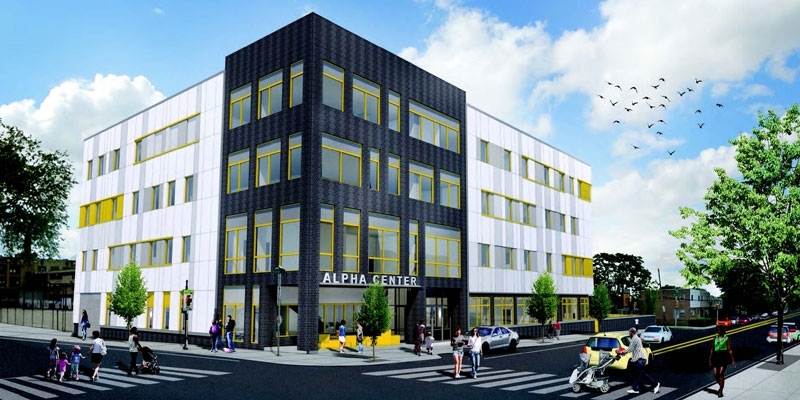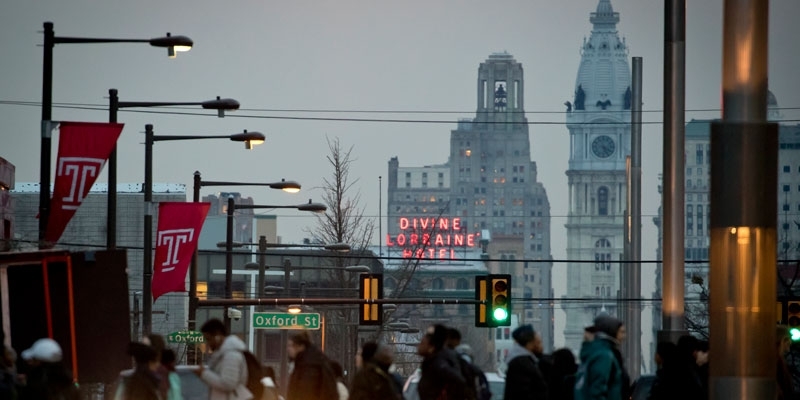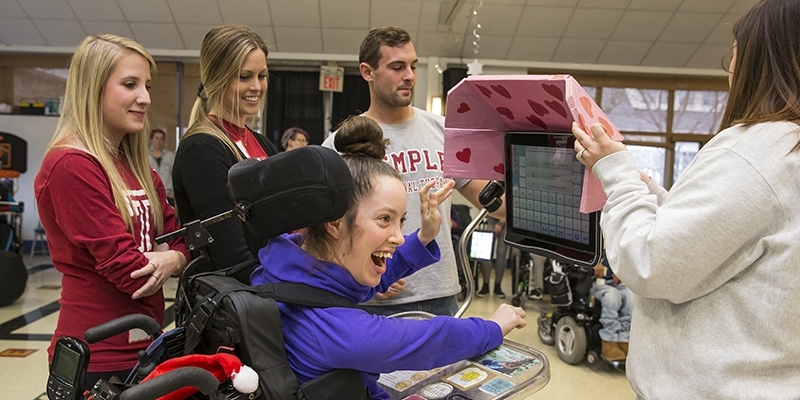Shaping history: Community-led education program is first of its kind
Temple University and residents in the Norris Homes partnered to create a unique, federally funded community-led educational program for neighborhood children.
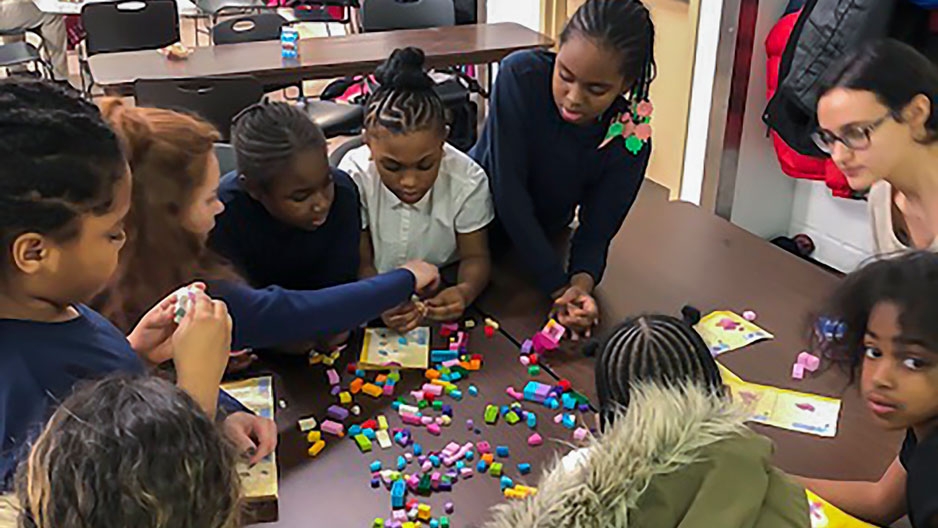
When Donna Richardson began working with Temple’s College of Education to develop a program for children in the Norris Homes community just east of Main Campus, she came with a clear vision for what would be best for the kids.
Living and raising children in a community for 30 years fosters that kind of dedication and expertise.
“I got involved when I saw that [existing] programs did not really fit the needs of the children and families,” said Richardson, president of the Norris Community Resident Council Inc.
Several years ago—long before the opportunity to partner with Temple arose—Richardson, along with neighbors, banded together to create the better future they envisioned for their children. “We just started volunteering our time to do homework with kids, art projects, and we collected materials from different places willing to donate, as well as food out of our homes to make sure they had a healthy snack,” Richardson recalled.
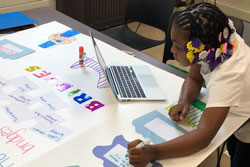
The first of its kind
In 2015, when the College of Education became the educational lead on a five-year, $30 million federal Choice Neighborhoods Implementation Grant aimed at improving education and housing for children in the Norris Homes community, Richardson already knew exactly what would work for the kids in her neighborhood. In addition to programming based in neighborhood schools, as initially committed to the grant’s education component, Richardson suggested a novel idea: to create a community-based and community-led after-school and summer camp program that would provide a place for children to continue learning outside the classroom.
“The most unique aspect of the program is that we wanted the residents to lead this and really be the service providers, so the residents are the staff at the center administering the program and providing instruction to the kids,” said M. Meghan Raisch, Temple’s education engagement specialist for the Choice Neighborhoods grant. “Our role is to provide the professional development to the staff and do some data collection, too, as well as the program evaluation.”
Together, Richardson, her fellow residents in the Norris Homes, and Temple are shaping history: The Norris Homes after-school and summer camp programs, now entering their fourth year, are the only programs of their kind in the country, Raisch said. Raisch and Professor James Earl Davis, the Bernard C. Watson Endowed Chair in Urban Education, who also worked on the programs’ development, said they hope they will eventually provide a model that can be replicated in other communities.
“We see the community schools model, and we see university-assisted schools, but we’ve never seen a resident-led after-school program that is a partnership like this between a university and an affordable housing community,” Raisch said.
In less than four years, Temple’s planned in-kind contributions of $1.2 million over the lifetime of the grant, provided in the form of school-based reading and math supports, student teachers, tutors, academic resources and other partnership support, has been surpassed. In-kind contributions by the college to the program have reached roughly $1.9 million and continue to grow, Raisch and Davis said.
The Norris Homes program, based in the neighborhood’s community center at 11th and Berks streets, has also grown exponentially since its launch. The programs, both free, currently serve 40 children in kindergarten through eighth grade after school, and 65 children are enrolled in its eight-week summer camp, which runs from 8 a.m. to 5 p.m. weekdays. Eleven residents from the Norris community now hold paid staff positions with the program, and Raisch and Davis worked with Richardson to obtain nonprofit status for the organization so the program can continue to partner with Temple beyond the federal grant period and seek additional funding to sustain and grow.
Tapping natural experts
Davis and Raisch, both education experts who have earned PhDs in their field and bring varied experience—teaching in Philadelphia public schools for Raisch and studying education leadership and policy for Davis—said there are no better people to run the program than those in the community it serves.
“It’s not just that we’re hiring residents. We’re hiring staff with a cultivated capital around the knowledge of the neighborhood and the kids in the neighborhood, and then they bring that back to the after-school and summer programs,” Davis said. “What’s very difficult in any school or after-school setting is parent engagement, and they’re able to do this so much better, because it’s their neighbors, literally, and it’s their kids.”
Nakia Brunson, a Norris resident who now serves as the after-school program’s supervisor, knows firsthand the importance of building relationships with other parents in helping students to stay on track in school. For several years, Brunson, also a longtime community resident, has acted as a liaison between parents and neighborhood schools.
“I like to do stuff from the kids’ point of view more than the adults’. We never hear from kids’ point of view about what they want,” said Brunson, a mother of four. “I just love being around the kids.”
Brunson brought her love of math and science to the Norris programs, helping to launch science, technology, engineering and math (STEM) education that led to an annual STEM science fair held at the community center, where kids can show off their knowledge.
Through the program, students have also taken excursions they may not have had otherwise, including field trips to Philadelphia landmarks and museums made possible through a partnership with Temple Police that provides buses and alumni-funded trips to the Smithsonian Institution in Washington, D.C., the National Aquarium in Baltimore and the Hayden Planetarium in New York.
Staying home
Beyond providing a place for children to continue learning outside of school, the Norris program has also been a constant during a time of transition for the community: As part of the Choice Neighborhoods grant, residents of the Norris Homes have been temporarily relocated as the Philadelphia Housing Authority and its partners raze the old buildings and construct new, upgraded affordable housing.
The five-phase redevelopment effort will create a mixed-income, mixed-use community and add additional affordable housing units to the area. The first phase will complete construction in the fall, and subsequent phases are set to be completed by 2021. Norris Homes residents will have first priority to move back when construction is completed. In addition to the new housing units and retail spaces, a new community building will be constructed to allow the after-school and summer programs more space.
Until then, the current community center—which will remain open during construction—and its programs are keeping neighbors and their children connected.
“When everybody was moving, the first question they asked was what was going to happen to the kids’ program, and they were so delighted to know that it stays, so it gave them comfort,” Richardson said. “You can separate our houses, but you can’t separate us.”
